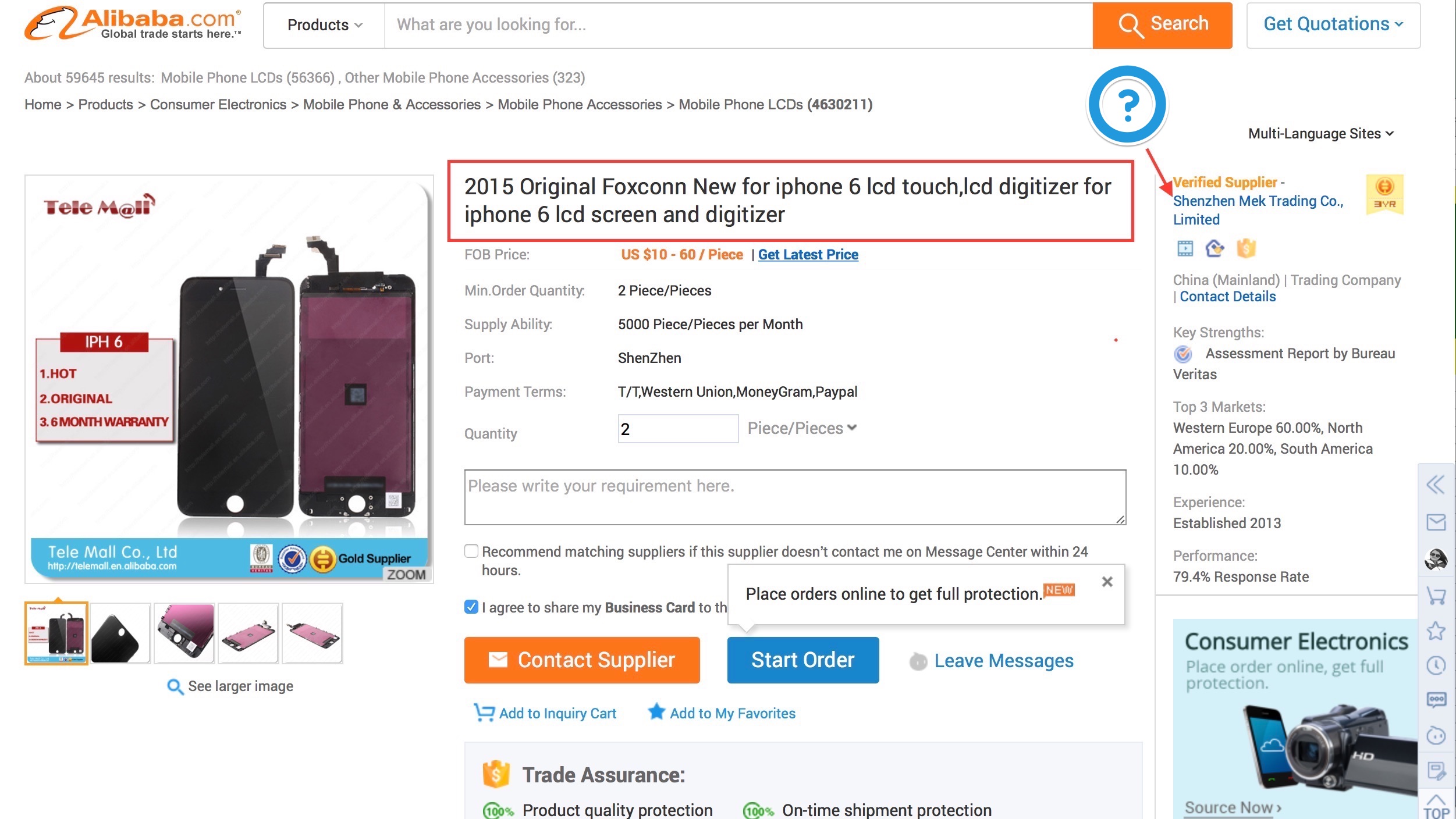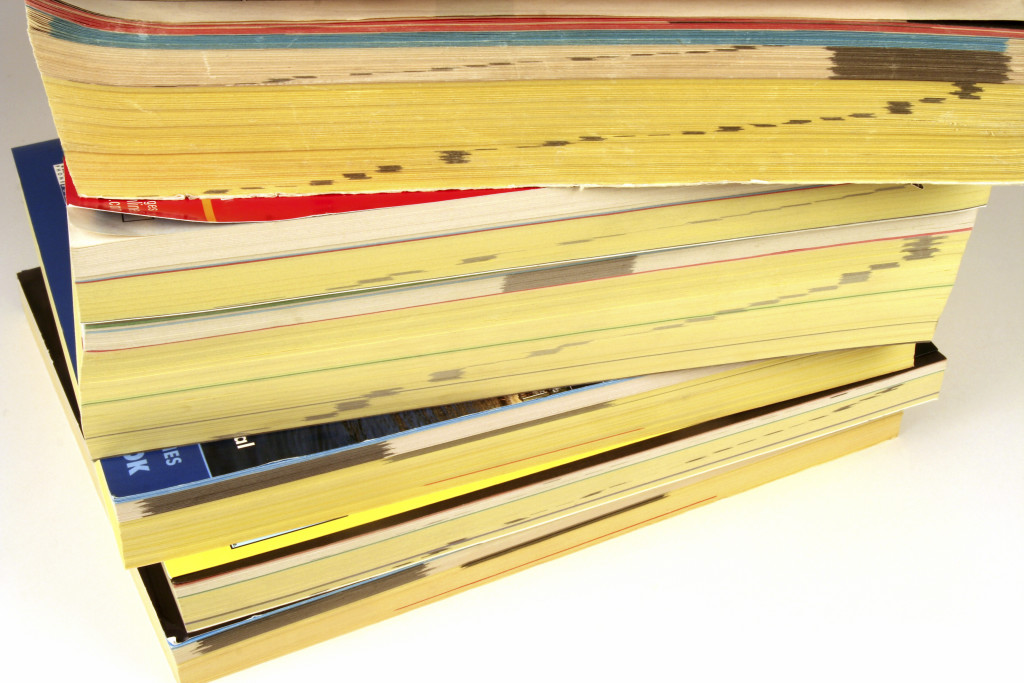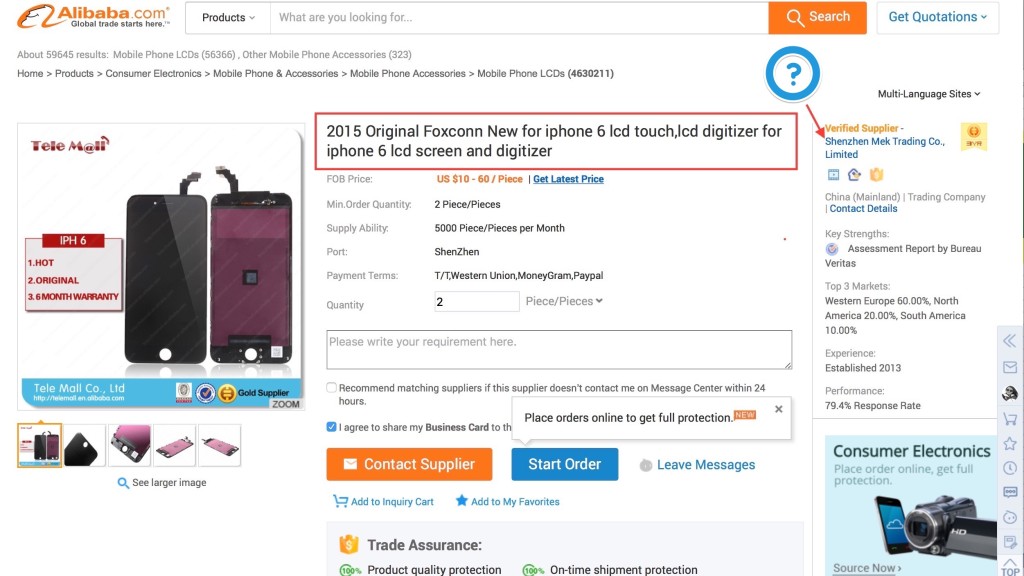This post is a part of a series on “How to find suppliers beyond Alibaba”. (Part 1)
Before we dive into online sourcing, first you need to identify what type of supplier you’re looking for. It’s like in dating – a gold digger (big supplier) isn’t gonna waste her time going out with a bootstrapped entrepreneur (testing the waters as a small volume buyer), get it? You have to find a supplier that is right for your needs so we will be discussing Aliexpress and DHgate for small volume orders.
Before we do that, you need to identify your needs first: what kind of product you’re looking for, how much do you need to start off and in the future if your business explodes, your budget, and your timeline. If a supplier makes the right product but has a minimum order quantity of 1,000pcs and you only need 5pcs, then obviously this is not going to work.

Best practice: I know it doesn’t sound sexy and you want to go straight in, but doing a little work upfront will save you a lot of time and headaches in the future. First put together a request for quotation (RFQ) and then select the right platforms to connect to the suppliers in your ballpark. If you have questions about RFQs, please leave them in the comments below.
Small volume orders
You might be thinking: why are these suppliers offering such low quantities? It could be several reasons. The factory could have leftover inventory from a previous order they want to liquidate. Or they could have an order cancellation because of product quality problems or defects. Another possibility is they could be middlemen.
In any case if you’d like to start small to test the waters then try Aliexpress or DHgate. Minimum order quantities (MOQs) can be as low as 1 piece. In this case middlemen can actually work in your favor because they can offer lower MOQs than ordering from direct manufacturers. Some suppliers offer free shipping as well so it’s relatively easy.
On the hand expect to pay a higher price, normally at least 30% more than ordering direct from a factory. Prepare for a long wait because free shipping is normally by China Post and may take upwards of 30 days. Also beware quality problems because there is a risk they are defective items.
Best practice: Instead of asking for a sample (not worth the cost for such a small order), ask for a photo of the actual product and packaging before placing an order so you can “see” if there are any problems. Also ask if these products have any defects. They may or may not tell you but it doesn’t hurt to ask! If there are defects then try to negotiate a discount.
Aliexpress
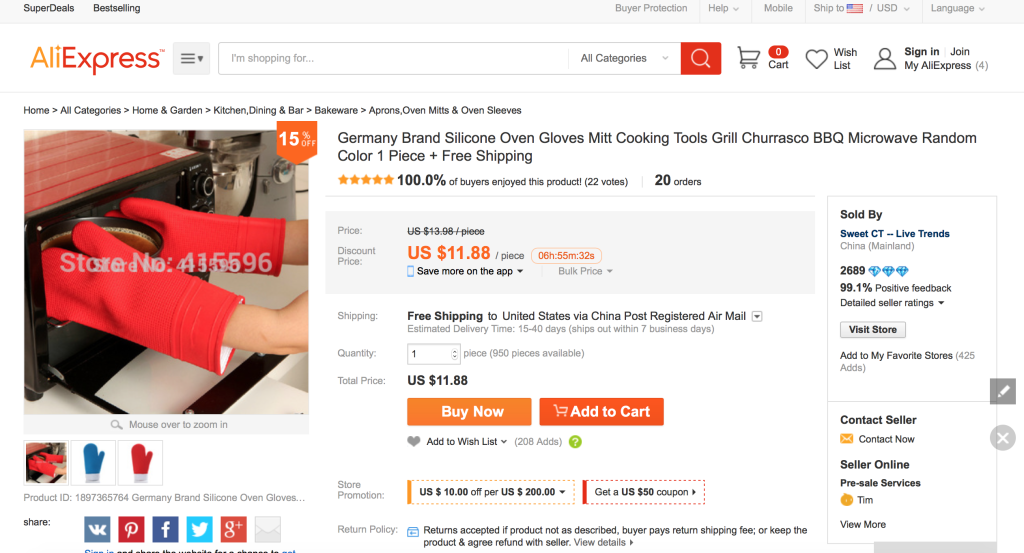
Think of this as an eBay with sellers from China shipping to buyers around the world. They sell individual items and small wholesale lots. This is good if you want to test the waters with a small order or to sell locally (e.g. Craigslist, swap meet, bricks and mortar store, etc). I know some people who buy off Aliexpress to use for themselves as well.
Aliexpress if fine if you volume is small and if you’re just starting out. I don’t recommend it if you want to build a scalable business because you likely are not dealing with the direct manufacturer but with a middle man who will not reveal the factory to you. This means you won’t get the best price. Another major disadvantage is that you are not building a relationship with the supplier. This relationship is critical if you want to build a sustainable business.
Just as in dating as you get to know each other better you grow together to find out their strengths, weaknesses, likes and dislikes to find out if you’re compatible. Similarly as you grow your business with the supplier you want to decide if you will invest in a long term relationship where you be able to negotiate lower pricing, better payment terms, smoother communication, etc. In good scenarios you will continue dating. In bad situations, such as poor quality products, missed deliveries, miscommunication, etc you can drop them.
Pros:
- Find same products offered on Alibaba
- Lower MOQs
- Escrow service for added protection (but you will pay a few % more)
Cons:
- Higher prices (at least 25% more)
- Dealing with middlemen – higher prices, hidden factory, risk of disappearing overnight
- Difficult to establish long term relationship with direct manufacturer
- Beware defective and counterfeit products
DHgate
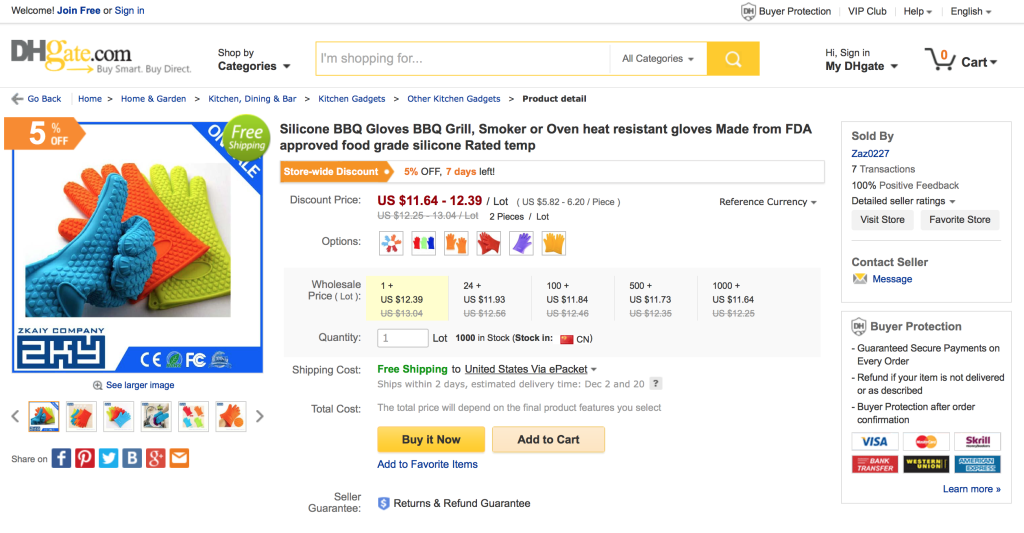
DHgate is another online directory of suppliers that target small volume buyers. The main advantage again is lower MOQs – as low as 1pc. Users report that there are a larger variety of products on DHgate it can be a good resource to complement Aliexpress or for certain niche items. They also offer an escrow service to protect you but this will cost you a few extra % points on top of the quotation. Or it will already be embedded in the quotation. This is common practice in China.
Pros
- Larger variety of products
- Lower MOQs (as low as 1pc)
- Escrow service – DHgate buyer protection plus
Cons
- Higher prices (at least 25% more)
- Dealing with middlemen – higher prices, hidden factory, risk of disappearing overnight
- Difficult to establish long term relationship with direct manufacturer
- Beware defective and counterfeit products
There are a few more minor players who I will not get into because I believe you can find 80% of the Chinese small volume sellers using just these two platforms mentioned above. 80/20 rule!
In the next article we will cover platforms for medium to large volume buyers. Please signup to my newsletter to receive free updates.
Meanwhile have you’ve used Aliexpress or DHgate before? Please share your success or horror stories below.
Please signup for my newsletter for a “deeper dive” into these topics. Good luck!

